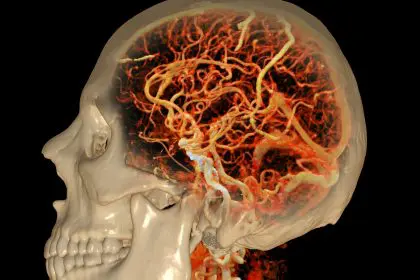Dizziness, numbness, and confusion represent some of the most concerning neurological symptoms that can signal serious underlying medical conditions. While these sensations occasionally result from minor issues like dehydration or fatigue, certain combinations and patterns demand immediate medical intervention to prevent life-threatening complications or permanent damage.
The challenge lies in distinguishing between temporary, benign episodes and symptoms that indicate emergencies like stroke, heart attack, or severe infections. Understanding when these neurological changes require urgent medical care can mean the difference between full recovery and devastating consequences that affect quality of life permanently.
Modern medicine has identified specific warning patterns that help individuals and families recognize when dizziness, numbness, or confusion crosses the threshold from minor inconvenience to medical emergency. These twelve critical situations provide clear guidelines for seeking appropriate medical attention before conditions worsen or cause irreversible harm.
1. Sudden onset with severe intensity
Abrupt development of intense dizziness, numbness, or confusion within minutes represents a medical emergency requiring immediate hospital evaluation. This rapid onset pattern differs dramatically from gradual symptoms that develop over days or weeks, suggesting acute vascular events, infections, or toxic exposures.
Stroke-related symptoms often begin suddenly without warning, affecting brain regions responsible for balance, sensation, and cognitive function. The intensity typically exceeds anything previously experienced, creating alarm in affected individuals and observers. Time becomes critical in these situations, as rapid intervention can prevent permanent brain damage.
Heart rhythm disturbances can also cause sudden dizziness combined with confusion as blood flow to the brain becomes compromised. These episodes may last minutes to hours and can progress to loss of consciousness without immediate medical treatment. Emergency room evaluation becomes essential for proper diagnosis and stabilization.
Toxic exposures from medications, chemicals, or substances frequently produce rapid-onset neurological symptoms. The sudden nature and severity distinguish these episodes from common causes like inner ear problems or low blood sugar, warranting immediate medical assessment and potential antidote administration.
2. Combined with severe headache patterns
The combination of dizziness, numbness, or confusion with severe headache creates a dangerous symptom complex that can indicate life-threatening conditions. This pairing often signals increased pressure within the skull, vascular abnormalities, or serious infections affecting the central nervous system.
Brain hemorrhages frequently present with sudden, severe headaches accompanied by neurological symptoms like dizziness and confusion. The headache intensity typically exceeds normal tension or migraine patterns, often described as the worst headache ever experienced. Immediate medical evaluation becomes crucial for emergency surgical intervention.
Meningitis combines severe headache with confusion, fever, and neck stiffness. The infection spreads rapidly through brain and spinal cord coverings, requiring immediate antibiotic treatment to prevent death or permanent disability. Emergency room evaluation cannot be delayed when these symptoms occur together.
Severe hypertension can produce headaches with dizziness and confusion as blood pressure reaches dangerous levels. This hypertensive crisis requires immediate medical intervention to prevent stroke, heart attack, or organ damage. Blood pressure monitoring and emergency treatment become essential for preventing complications.
3. Progressive worsening over hours or days
Neurological symptoms that steadily worsen over short periods indicate evolving medical emergencies requiring prompt intervention. Unlike stable symptoms that remain constant, progressive deterioration suggests ongoing damage to brain tissue, blood vessels, or nerve structures that demands immediate medical attention.
Brain tumors can cause gradually worsening confusion, dizziness, and numbness as growing masses compress surrounding tissues. The progressive nature distinguishes these symptoms from temporary conditions, and early detection improves treatment outcomes significantly. Neurological evaluation becomes necessary when symptoms show steady decline.
Blood clots in brain vessels often produce gradually worsening symptoms as circulation becomes increasingly compromised. The progression may occur over hours to days, creating opportunities for intervention before permanent damage occurs. Emergency evaluation and treatment can prevent complete stroke development.
Infections affecting the brain or nervous system typically worsen progressively as bacterial or viral loads increase. The deteriorating pattern combined with fever, headache, or neck stiffness requires immediate medical evaluation and aggressive treatment to prevent permanent neurological damage.
4. Accompanied by chest pain or breathing problems
The combination of neurological symptoms with cardiac or respiratory distress creates a medical emergency requiring immediate hospital evaluation. This symptom complex can indicate heart attacks, pulmonary embolisms, or severe cardiovascular compromise affecting brain blood flow.
Heart attacks frequently produce dizziness and confusion as cardiac output decreases and brain perfusion becomes compromised. Chest pain may accompany these symptoms, but some individuals experience primarily neurological changes without obvious cardiac symptoms. Emergency cardiac evaluation becomes essential for preventing death or permanent heart damage.
Pulmonary embolisms can cause sudden dizziness, confusion, and breathing difficulties as blood clots block lung circulation. The reduced oxygen levels affect brain function while creating respiratory distress. Immediate medical intervention with blood thinners or clot removal procedures becomes life-saving.
Severe heart rhythm abnormalities produce dizziness and confusion as irregular heartbeats compromise blood flow to the brain. Breathing difficulties may accompany these symptoms as the heart’s pumping effectiveness decreases. Emergency cardiac monitoring and treatment prevent progression to cardiac arrest.
5. Following head injury or trauma
Any neurological symptoms developing after head injury require immediate medical evaluation regardless of apparent injury severity. Even minor head trauma can cause serious internal bleeding or brain swelling that manifests hours or days after the initial incident.
Concussions can produce delayed symptoms including dizziness, confusion, and numbness that worsen over time. The delayed onset pattern makes these injuries particularly dangerous, as individuals may not seek medical attention until serious complications develop. Immediate evaluation after head trauma prevents missed diagnoses.
Brain hemorrhages following trauma may not produce immediate symptoms but can cause progressive neurological deterioration as bleeding continues. The delayed presentation creates false security, making medical evaluation essential after any significant head impact. Emergency imaging can detect bleeding before symptoms become life-threatening.
Cervical spine injuries from trauma can cause numbness and dizziness through nerve compression or blood vessel damage. These injuries may not be immediately apparent but can progress to paralysis or stroke without proper medical evaluation and stabilization.
6. Associated with fever and neck stiffness
The triad of neurological symptoms, fever, and neck stiffness represents a classic presentation of serious central nervous system infections requiring emergency medical intervention. This combination demands immediate hospital evaluation and aggressive treatment to prevent death or permanent disability.
Bacterial meningitis produces this symptom complex as infection spreads through brain and spinal cord coverings. The combination creates a medical emergency requiring immediate antibiotic administration and supportive care. Delays in treatment can result in death within hours or permanent neurological damage.
Brain abscesses can present similarly as localized infections create pressure and inflammation within brain tissues. The fever, confusion, and neck stiffness indicate serious infection requiring immediate surgical drainage and antibiotic therapy. Emergency neurosurgical evaluation becomes essential for optimal outcomes.
Viral encephalitis produces similar symptoms as inflammation affects brain tissues directly. While potentially less severe than bacterial infections, viral encephalitis still requires immediate medical evaluation and supportive treatment to prevent complications and optimize recovery.
7. Accompanied by weakness or paralysis
The combination of dizziness, confusion, or numbness with muscle weakness or paralysis indicates serious neurological emergencies requiring immediate medical intervention. This symptom complex often signals stroke, spinal cord injury, or severe peripheral nerve disorders.
Stroke frequently presents with confusion, dizziness, and weakness affecting one side of the body. The combination indicates brain tissue damage from blocked or ruptured blood vessels. Immediate medical intervention with clot-dissolving medications or surgical procedures can minimize permanent disability.
Spinal cord compression from herniated discs, tumors, or injuries can cause numbness combined with progressive weakness. The combination indicates potential permanent paralysis without immediate surgical intervention. Emergency neurosurgical evaluation becomes essential for preventing irreversible damage.
Guillain-Barre syndrome produces progressive numbness and weakness that can advance to respiratory paralysis. The combination of sensory and motor symptoms requires immediate medical monitoring and supportive care to prevent life-threatening complications.
8. During medication changes or new prescriptions
Neurological symptoms developing after starting new medications or changing dosages require immediate medical evaluation to prevent serious drug reactions or toxicities. Many medications can affect brain function, balance, and sensation, creating dangerous side effects that demand prompt intervention.
Anticoagulant medications can cause brain bleeding that presents with confusion, dizziness, and numbness. The combination indicates potential intracranial hemorrhage requiring immediate medical evaluation and possible antidote administration. Emergency treatment can prevent permanent brain damage.
Cardiac medications affecting heart rhythm or blood pressure can produce dizziness and confusion as brain blood flow becomes compromised. The symptoms may indicate dangerous drug levels or interactions requiring immediate dosage adjustments or alternative treatments.
Psychiatric medications can cause serious neurological side effects including confusion, movement disorders, and altered consciousness. The combination of symptoms may indicate drug toxicity or dangerous interactions requiring immediate medical evaluation and treatment modifications.
9. With vision changes or hearing loss
The combination of neurological symptoms with sensory changes indicates serious conditions affecting multiple brain regions or cranial nerves. This symptom complex requires immediate medical evaluation to identify and treat underlying causes before permanent sensory loss occurs.
Stroke affecting specific brain regions can cause confusion, dizziness, and vision loss simultaneously. The combination indicates damage to areas controlling multiple functions, requiring immediate medical intervention to prevent additional brain tissue death. Emergency treatment can preserve remaining function.
Brain tumors can compress multiple cranial nerves, producing combinations of neurological and sensory symptoms. The progressive nature and multiple system involvement require immediate neurosurgical evaluation and treatment planning. Early intervention improves treatment outcomes significantly.
Inner ear disorders affecting the vestibular system can cause severe dizziness with hearing loss, though typically without confusion. However, when confusion accompanies these symptoms, more serious central nervous system involvement becomes likely, warranting immediate medical evaluation.
10. Following drug or alcohol use
Neurological symptoms developing after substance use require immediate medical evaluation to identify potential overdoses, interactions, or complications requiring emergency treatment. The combination can indicate life-threatening toxicities or dangerous drug interactions.
Alcohol poisoning can cause severe confusion, dizziness, and numbness as blood alcohol levels reach toxic ranges. The combination indicates potential respiratory depression and cardiovascular collapse requiring immediate emergency medical treatment and supportive care.
Drug overdoses frequently produce neurological symptoms including confusion, dizziness, and altered sensation. The combination may indicate dangerous drug levels requiring immediate medical intervention, antidote administration, or supportive care to prevent death or permanent damage.
Withdrawal syndromes from alcohol or drugs can cause severe neurological symptoms including confusion, tremors, and sensory disturbances. The combination may indicate life-threatening withdrawal complications requiring immediate medical management and supportive treatment.
11. In elderly individuals with sudden changes
Older adults experiencing sudden neurological symptoms require immediate medical evaluation as age-related factors increase risks for serious underlying conditions. The combination of advanced age with acute neurological changes creates heightened concern for emergencies requiring prompt intervention.
Stroke risk increases significantly with age, making sudden confusion, dizziness, or numbness particularly concerning in elderly individuals. The combination requires immediate emergency evaluation as older adults may have atypical presentations of serious vascular events.
Medication toxicities occur more frequently in elderly individuals due to altered drug metabolism and multiple medication interactions. Neurological symptoms in this population may indicate dangerous drug accumulation requiring immediate medical evaluation and treatment adjustments.
Infections can cause rapid neurological deterioration in elderly individuals as immune systems become less effective. The combination of age with acute neurological changes may indicate serious infections requiring immediate antibiotic treatment and supportive care.
12. With difficulty speaking or swallowing
The combination of neurological symptoms with speech or swallowing difficulties indicates serious conditions affecting brain regions controlling these vital functions. This symptom complex requires immediate medical evaluation to prevent life-threatening complications and optimize treatment outcomes.
Stroke frequently affects speech and swallowing centers in the brain, producing confusion, dizziness, and communication difficulties simultaneously. The combination indicates significant brain involvement requiring immediate medical intervention to prevent additional tissue damage and preserve function.
Myasthenia gravis can cause progressive weakness affecting speech, swallowing, and breathing while producing generalized fatigue and confusion. The combination indicates potential respiratory compromise requiring immediate medical monitoring and treatment to prevent life-threatening complications.
Brain stem disorders affecting vital functions can cause multiple neurological symptoms including dizziness, confusion, and difficulties with speech or swallowing. The combination indicates serious central nervous system involvement requiring immediate neurosurgical evaluation and intensive medical management.
Recognition of these twelve critical situations empowers individuals and families to seek appropriate medical care when neurological symptoms cross the threshold from minor concerns to medical emergencies. The combinations and patterns described here represent serious medical conditions requiring immediate professional evaluation and treatment. Early intervention in these situations can prevent permanent disability, preserve neurological function, and save lives through prompt recognition and appropriate medical response.















